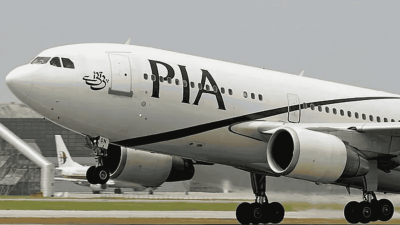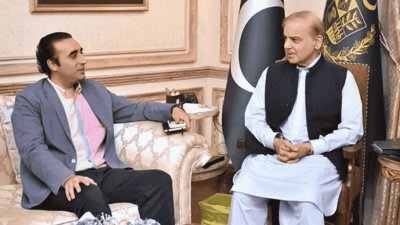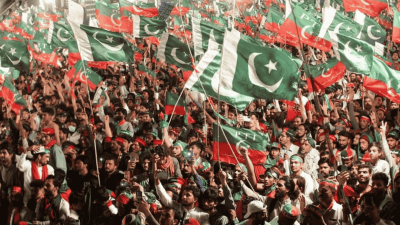In Pakistan’s rapidly expanding online landscape, a parallel economy is flourishing. On encrypted Telegram channels and WhatsApp groups, smugglers brazenly promote everything from duty-free cigarettes to luxury cosmetics. On Facebook Messenger, sellers circulate images of untaxed cartons of cigarettes, smuggled beverages, and imported electronics, while TikTok videos discreetly display contraband products to thousands of viewers. These platforms have evolved into the modern-day arteries of illegal trade, enabling smugglers to reach customers across Pakistan with unprecedented ease and discretion.
This growing wave of “online smuggling” is fueling the influx of illegal products from Pakistan’s border regions, especially Balochistan and Khyber Pakhtunkhwa (KP), into central towns and city centers. Cigarettes, cosmetics, electronics, tea, and beverages are among the most commonly smuggled items. In cities like Quetta, Chaman, and Khyber, and transit routes such as Dera Ghazi Khan, goods move covertly under the radar, crossing into Punjab’s heartland.
Recent seizures reveal how organized these networks have become; in one instance, a truck carrying coal through DG Khan was found to be hiding hundreds of cartons of foreign, untaxed cigarettes. In another, an extensive network operating from Quetta through southern Punjab was exposed for smuggling everything from tyres to illegal cigarettes.
The losses to Pakistan’s economy are staggering. Conservative estimates place the annual tax revenue loss from smuggling at over Rs. 3.4 trillion, with just the top five sectors, including cigarettes, tea, beverages, electronics, and cosmetics, accounting for more than Rs. 2,000 billion. The illegal cigarette industry alone is believed to cause losses exceeding Rs. 300 billion every year, as untaxed brands overrun formal markets. These brands, sold at nearly half the price of legitimate products, continue to gain popularity through social media promotions and encrypted group sales, pushing compliant companies out of business and draining the national treasury.
Mubashir Akram, Country Director of ACT Alliance Pakistan, voiced serious concern over the evolving digital smuggling networks. “Pakistan’s economy has suffered at the hands of illegal trade for too long,” he said. “The scale of this damage is massive, and we cannot afford complacency. The government and FBR have shown welcome intent, but now we need large-scale administrative action.”
Akram stressed that the illegal cigarette industry has become a symbol of unchecked tax evasion. “We urge the government to pay special attention to this issue. The formal, tax-compliant tobacco industry is shrinking while untaxed brands flourish,” he added. “It sends a dangerous message when those who violate tax laws outcompete those who obey them.”
Other sectors are similarly impacted.
The majority of tea consumed in Pakistan is believed to be smuggled in through the Afghan Transit Trade. Fuel from Iran enters through porous borders in Balochistan, then is sold at cut-rate prices in coastal and urban markets. Cosmetics and electronics flood in through informal channels and are widely available from online sellers. These products bypass all regulation and taxation, making them cheap but illegally sourced. The internet provides the final marketplace, connecting border smugglers with buyers in Lahore, Karachi, Multan, and beyond.
Yet, despite overwhelming odds, Pakistan’s enforcement agencies are fighting back.
In recent months, FBR, Customs, and other law enforcement units have launched intensified anti-smuggling drives. Multi-billion-rupee seizures have occurred at warehouses, transportation hubs, and even retail outlets. Crackdowns on illegal cigarette factories and clandestine distribution points have picked up pace.
“This is a promising shift,” said Mubashir Akram. “But such efforts must become systematic, not seasonal. A few raids before the budget aren’t enough. We need enforcement all year, backed by proper intelligence, political will, and public accountability.”
Customs and excise officers, often working in hazardous conditions, deserve special recognition. From Balochistan’s deserts to KP’s rugged mountain passes, these officers face armed smugglers, criminal syndicates, and violent reprisals. In Dera Ismail Khan alone, several officers lost their lives in ambushes while inspecting suspected smuggling vehicles. Their sacrifice is a stark reminder that the fight against smuggling isn’t just economic, it is also a battle for law, order, and national security.
Despite these heroics, experts warn that the state lacks the muscle to turn the tide truly. The FBR’s current enforcement capacity is critically under-resourced. It is estimated that Pakistan needs at least 15 times more enforcement directorates and nearly 100 times more operational staff to effectively monitor and secure borders, highways, markets, and ports. Surveillance equipment, cyber-monitoring capabilities, and real-time coordination among agencies remain weak spots.
Even so, the government continues to push forward, quietly but persistently. Officials across sectors describe the current phase as a silent, consistent, and brutal battle, one being fought on the economic frontlines with limited resources but unlimited resolve. There is a new seriousness in policy circles to not just respond, but to reclaim revenue and rule of law.
As one senior source observed: “Right now the match is tied between the smugglers and the government, but the government is pushing hard and is unwilling to lose.” The stakes are high. Winning this fight is essential not only to boost Pakistan’s economy but also to protect its sovereignty, governance structures, and future.
Pakistan must win this battle because the price of failure is too high, and the path to national security runs through firm, fair, and enforceable economic borders.









